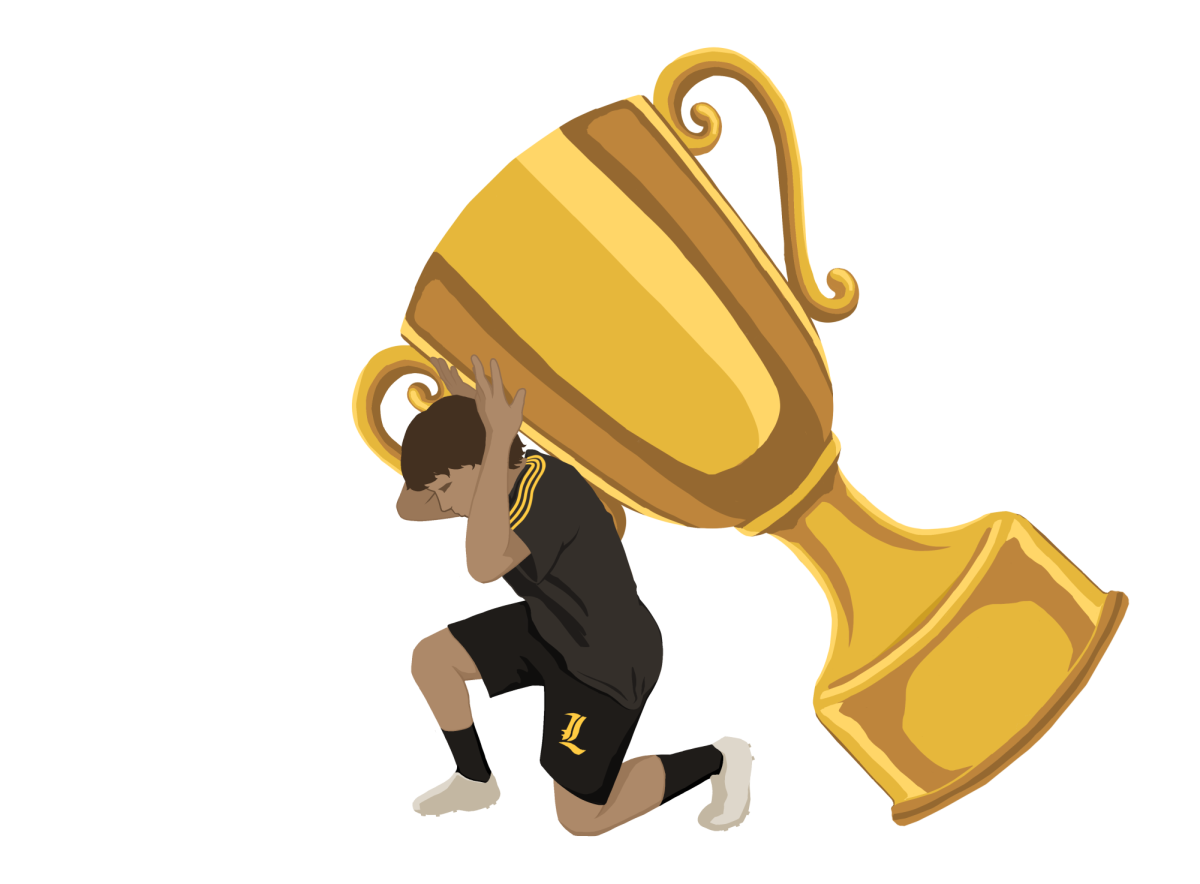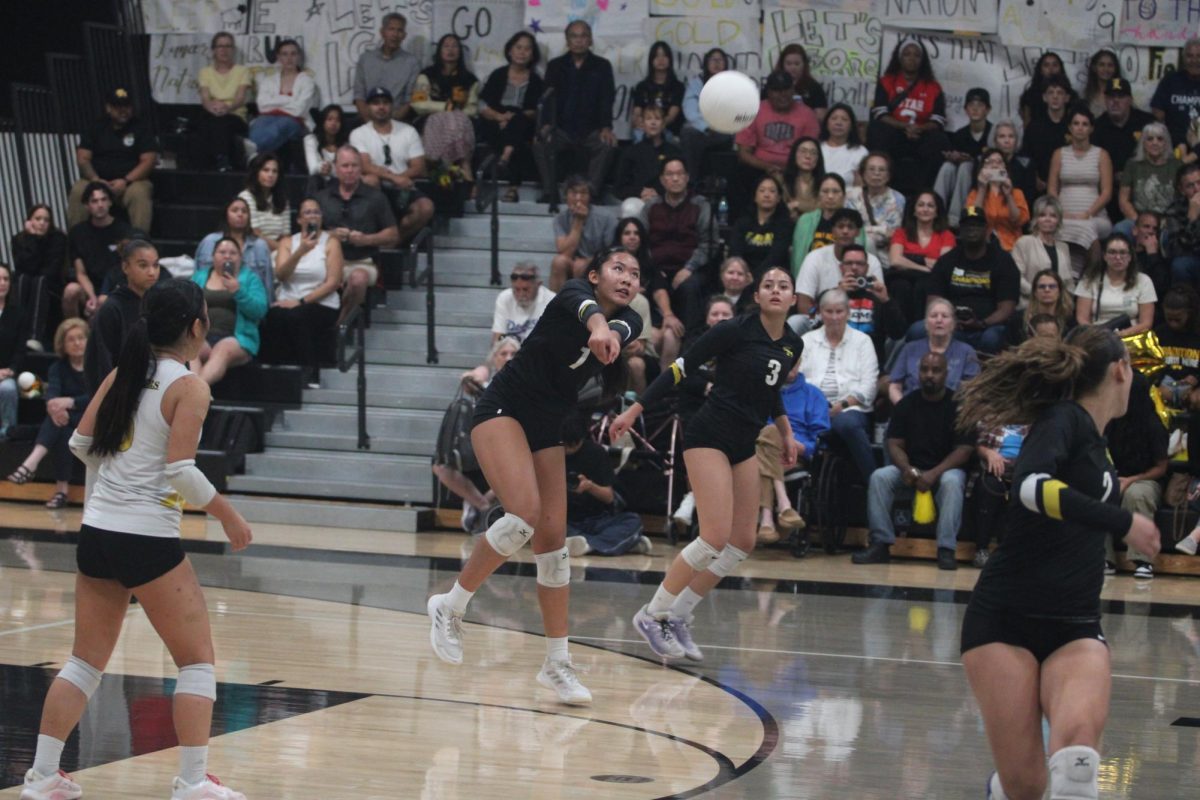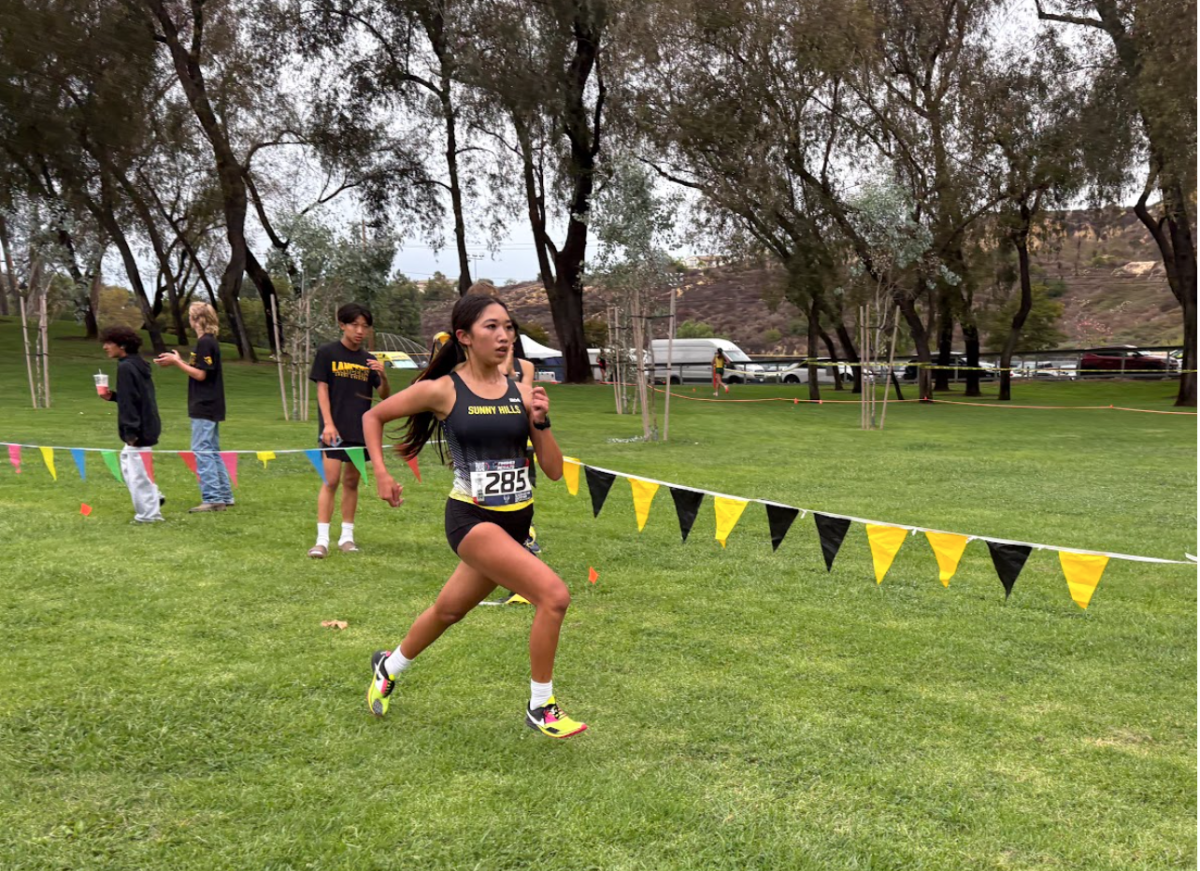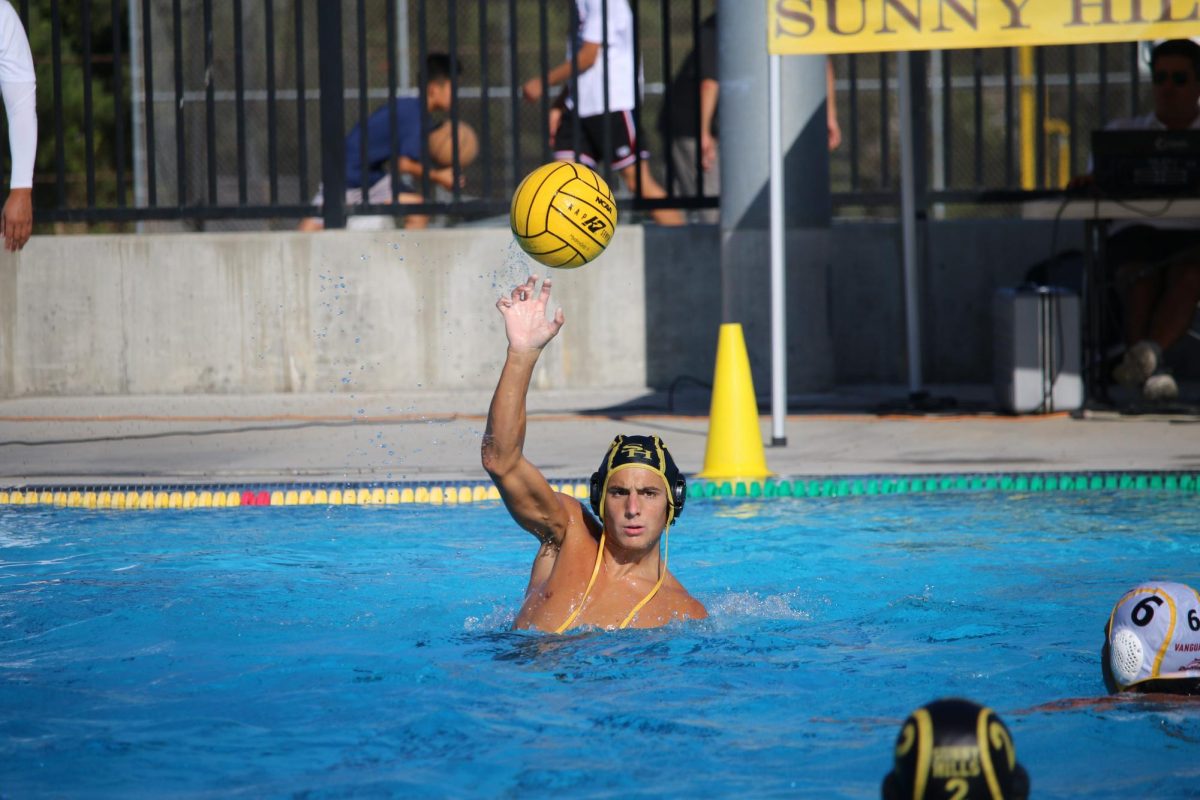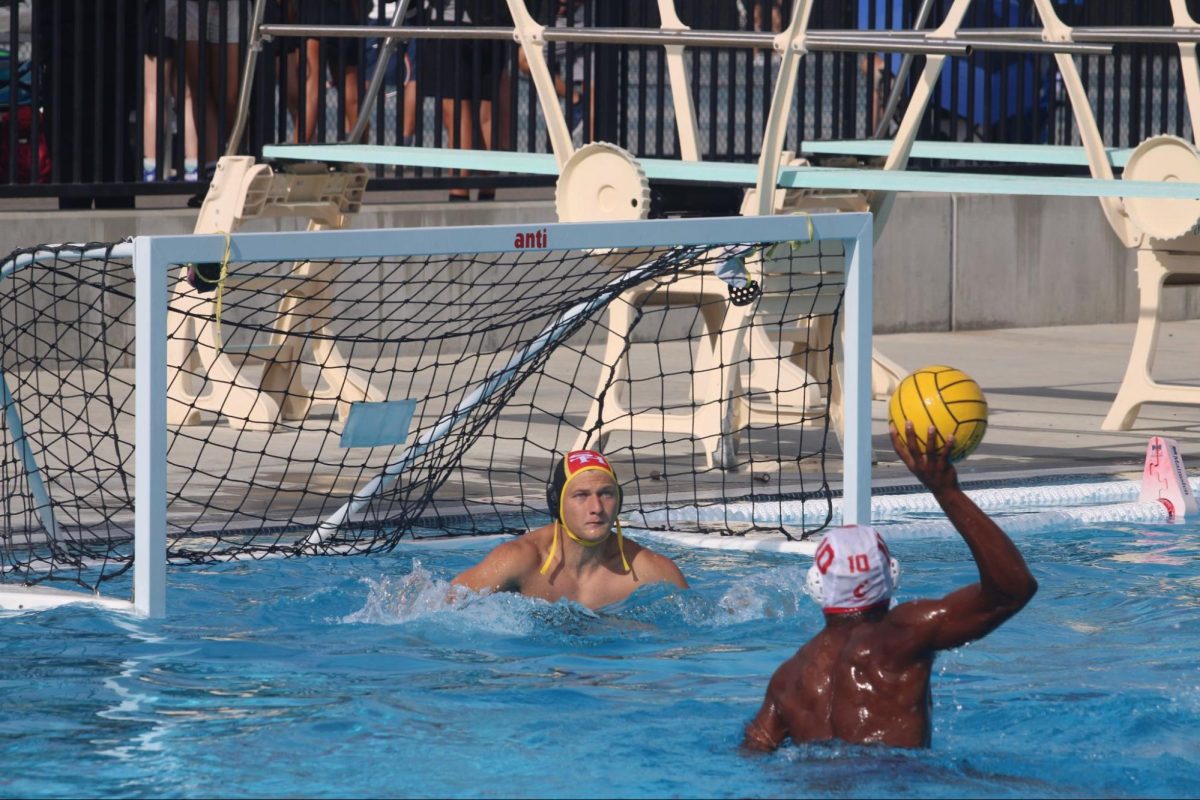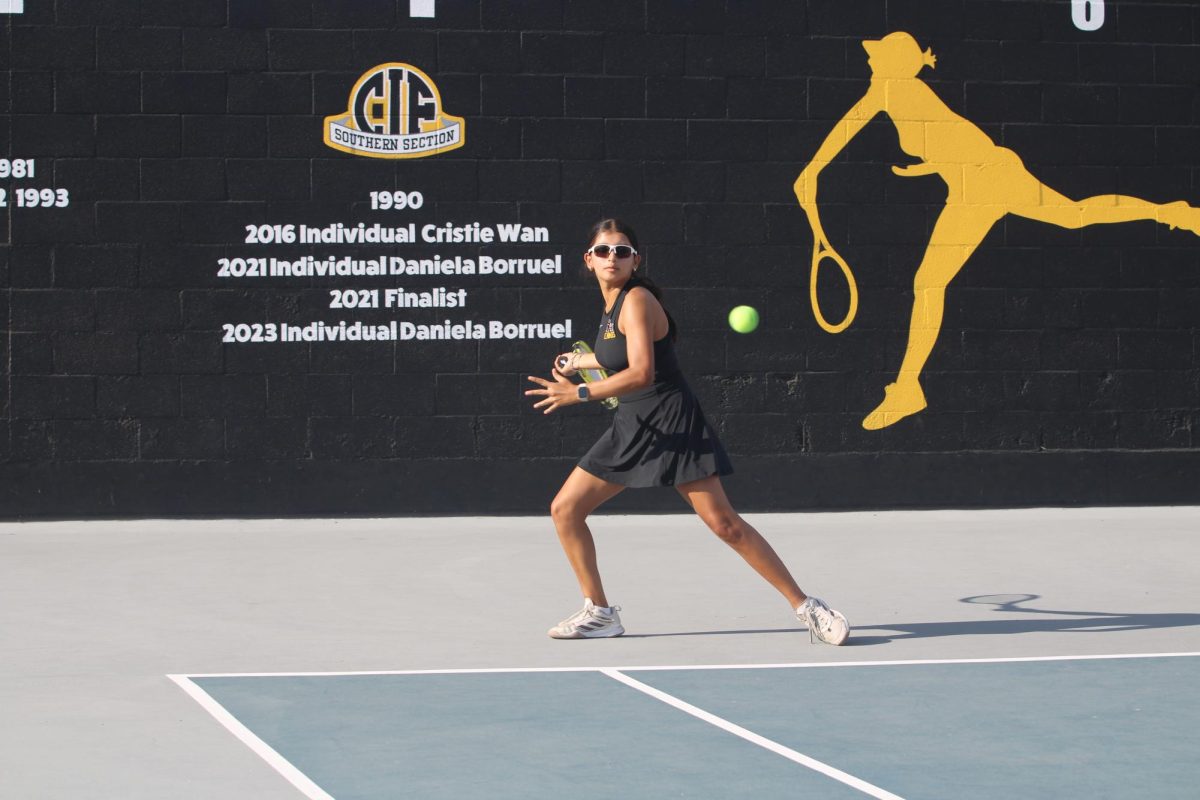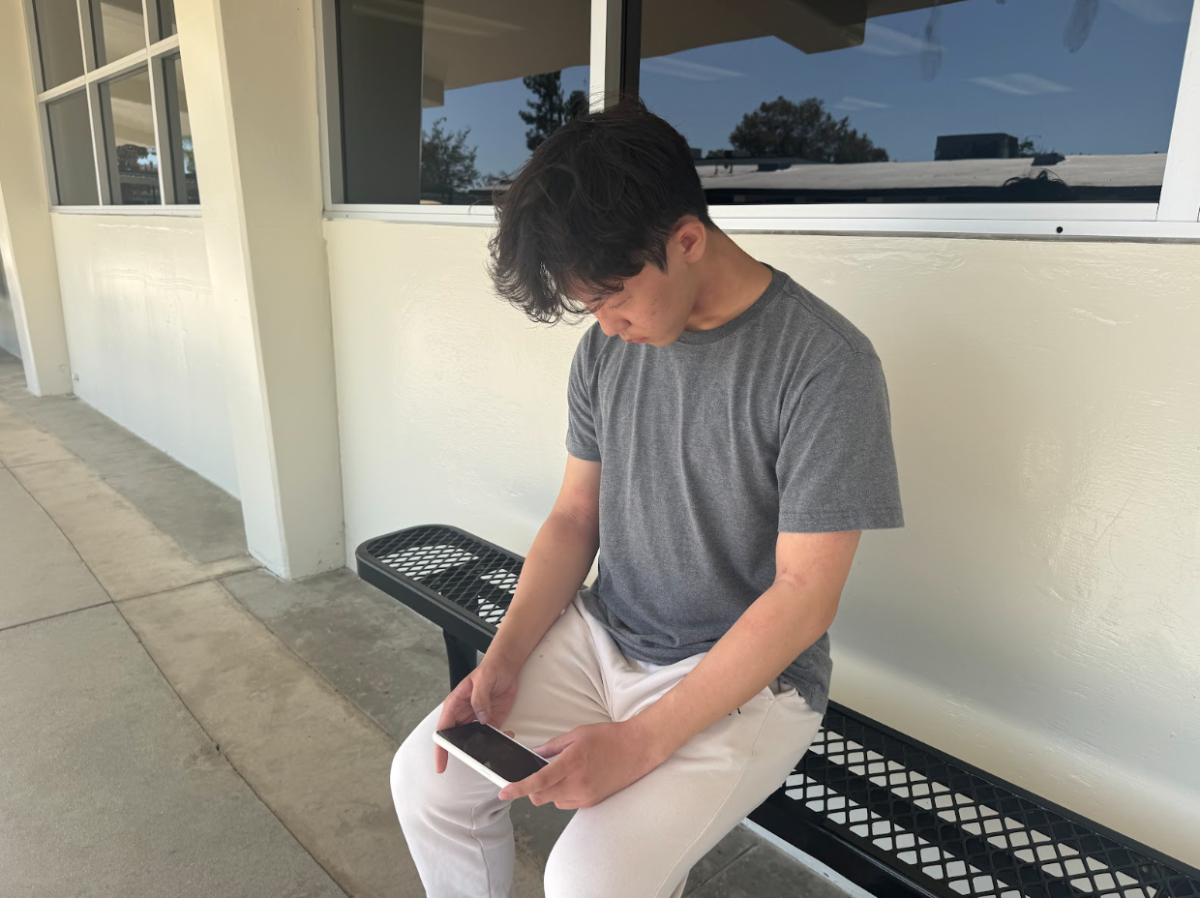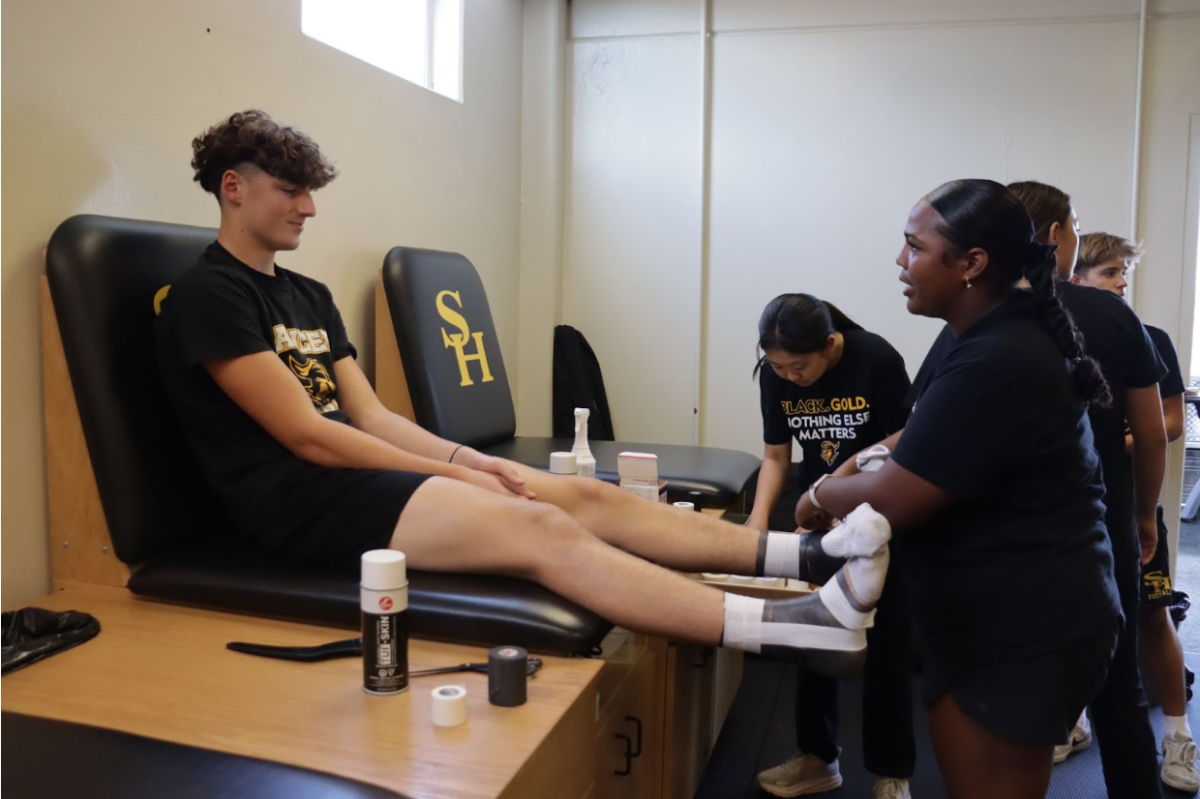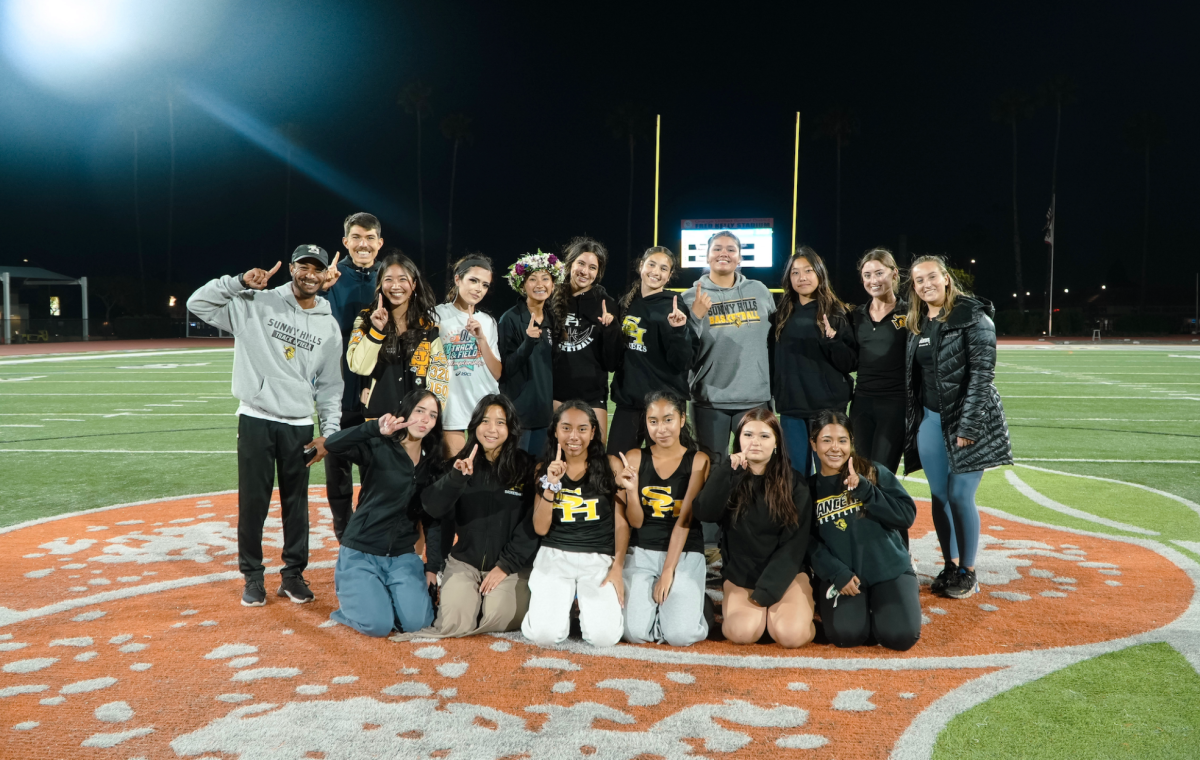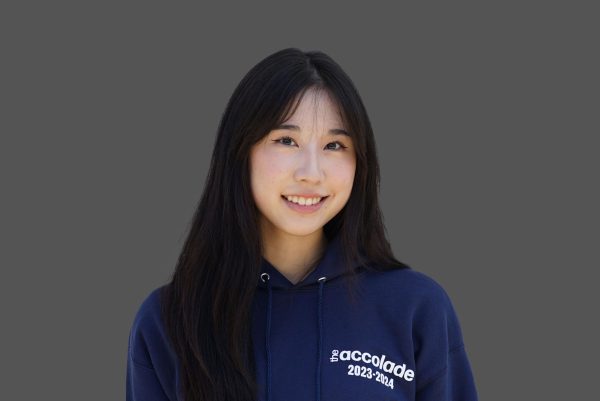It was the first time the Sunny Hills girls water polo team reached the CIF title game.
For six years, the Lady Lancers had dominated the Freeway League, remaining undefeated.
In previous years, the girls water polo players saw their season end abruptly in the early rounds of CIF playoffs. But not during the 2023-2024 school year.
The Lady Lancers (30-2) defeated their opponents handily en route to the championship round vs. private school, JSerra of San Juan Capistrano.
“It felt great to be recognized every morning after a good win and even a good loss, it made the team feel more validated as a whole,” varsity water polo goalie Sienna Bertsch said. “We all knew it was possible to make it to where we were and people recognizing it was an amazing feeling.”
On Saturday morning Feb. 18, the girls water polo team traveled from Fullerton to Irvine High School’s aquatic stadium to face the Lions (24-4). By the end of the first quarter, the team trailed 3-3, and it was clear the Lady Lancers would need a miracle to come back to win the match.
After losing 13-5, girls water polo head coach Keith Nighswonger helped his players deal with the defeat during a post-game meeting before the bus ride back to Fullerton.
“We’re public school champions so regardless of the score, I’m proud of all that we’ve accomplished,” the coach said to the girls.
Varsity water polo utility player senior Hannah Reekstin only expects the best for the next season.
“Even though our game ended with a loss, I’m so proud of us for being the first girls team at Sunny Hills to make it to the CIF finals,” Reekstin said. “It was worth everything and I’m confident that we’ll work harder because there’s always room for improvement.”
Though Bertsch and Reekstin managed their anxiety over each playoff match, some athletes may find it a struggle to deal with the grueling pressure before and after games. Whether the goal is a Freeway League title or the CIF plaque, the burden persists. However, with greater resources like the Sunny Spot and athletes’ own coping mechanisms, mental wellness among athletes is largely recognized.
Mental health specialist Staci Balliet said she intends to follow the footsteps of previous mental health specialist David Saldana, who now works full time at Fullerton Joint Union High School, by doing classroom presentations regarding mental health for sports teams as well as different programs on campus.
Having experience as a swimmer in high school, Balliet understands the importance of regrouping into an optimistic mindset after each sports game.
“I know that a lot of my teammates often felt pressured during and after games so it was always helpful for everyone to just completely forget about their bad game and focus on what we’re going to do good next,” she said.
For athletes returning to a new season or entering competitive tournaments, the mental health specialist reminds athletes not to link their self-worth to their performance in sports.
“I think students feel very connected to [their sport] and oftentimes find a lot of their identity in that community,” Balliet said. “A big part of their identity is in their sports, so their mental health can definitely be affected by how well or bad they do.”
Just as she suggested student athletes deal with pressure, baseball outfielder and pitcher senior Peter Mellena reassures himself and his teammates not to stress themselves out during games.
“I tell everyone that it’s just a game that we’re playing and it’s just for fun so don’t stress too much and don’t take it too seriously,” Mellena said. “Then, of course, finding time to put in work for baseball and school through good management is key.”
Performance pressure is common for SH athletes like junior varsity soccer player sophomore Lucy Lamping, who participates in competitions and tournaments in hopes of meeting the expectations of parents, coaches and team members.
“I’m always trying to stand out in some way and I don’t think it’s necessarily for praise but the pressure to just do well,” Lamping said. “It’s mostly so I don’t disappoint my teammates, and I also hold myself to a high standard, so it’s more pressure from myself to do better.”
Senior Madison Moreno also experiences the constant need to live up to certain expectations either created by herself or by her Corona Angels Softball team.
“Sometimes, I have imposter syndrome because whenever I do bad, I think to myself, ‘Do I even deserve that spot in college’ or constantly compare myself to my other really good teammates,” said Moreno, who also plays pitcher on the softball team at Sunny Hills.
After persistently seeking ways to tolerate the pressures within their sports, student-athletes must also find time to balance their school life as well.
From her sixth period softball practices to after-school private lessons for her club softball team (totaling 20 hours a week), Moreno’s night routine begins later than most people to complete homework and study for tests — all while attempting to take care of her body and mind. For her, she acknowledges the latter has often been forgotten.
“There are definitely times when I subconsciously put my sport above my own mental health,” Moreno said. “I think sometimes I put everything second to softball because of all the expectations I set for myself, so it definitely gets really stressful at times.”
She also learned a lot about herself during her underclassman years.
“In sophomore and junior year, I took a lot of AP [Advanced Placement] and honors classes that made playing a sport really difficult for me because there was just so much work,” the senior said. “I would find it hard to manage school assignments, ASB [Associated Student Body] and softball, and it would be too much for me at times.”
Moreno said she has since found ways to cope with the stress of balancing school and sports.
“This might sound really childish and funny but genuinely playing Roblox with my sister always takes my mind off of everything and of course, playing with my dogs,” said Moreno, who usually takes part in these activities after her tournaments.
Mellena testifies to the additional stressors of rigorous classes on top of sports and finds himself struggling to balance his priorities among baseball, extra lessons and school work.
“When [the] season is around, I’ll be a lot more focused on practice and school might not become the first priority for me,” Mellena said. “But this would just cause me more stress in school because then I won’t be performing as well so it just snowballs.”
SH coaches said they’re trying their best to enforce greater emphasis on athletes’ mental health by not jampacking their schedule with practices.
“In the offseason, [the coaches] try not to dominate their lives since we know they all have a pretty demanding schedule,” varsity and junior varsity baseball head coach Christopher Vogt said. “I think it’s pretty counterproductive to have three-hour practices year round so we try to utilize the time we have to be efficient.”
Balliet also offers the Sunny Spot in Room 22, which welcomes all students, including athletes who combat the burdens of balancing school work and sports, through a referral from their counselor.
“If these athletes are feeling overwhelmed or stressed, they can come in and utilize any of the [stress balls, coloring book, and other stress relieving] items in the room,” she said. “They can come in and touch base with me and if they’re in need of extra support, we try to connect them with extra assistance as well.”
Balliet agrees with Moreno about student athletes taking the time to find coping strategies to deal with balancing academics and sports.
“It’s healthy for students to learn what types of coping skills are going to be helpful for them to utilize in order to manage their stress,” she said. “If they’re ever referred to me, I make sure to talk about what stress looks like for them and how they can work on avoiding that through a beneficial way.”



